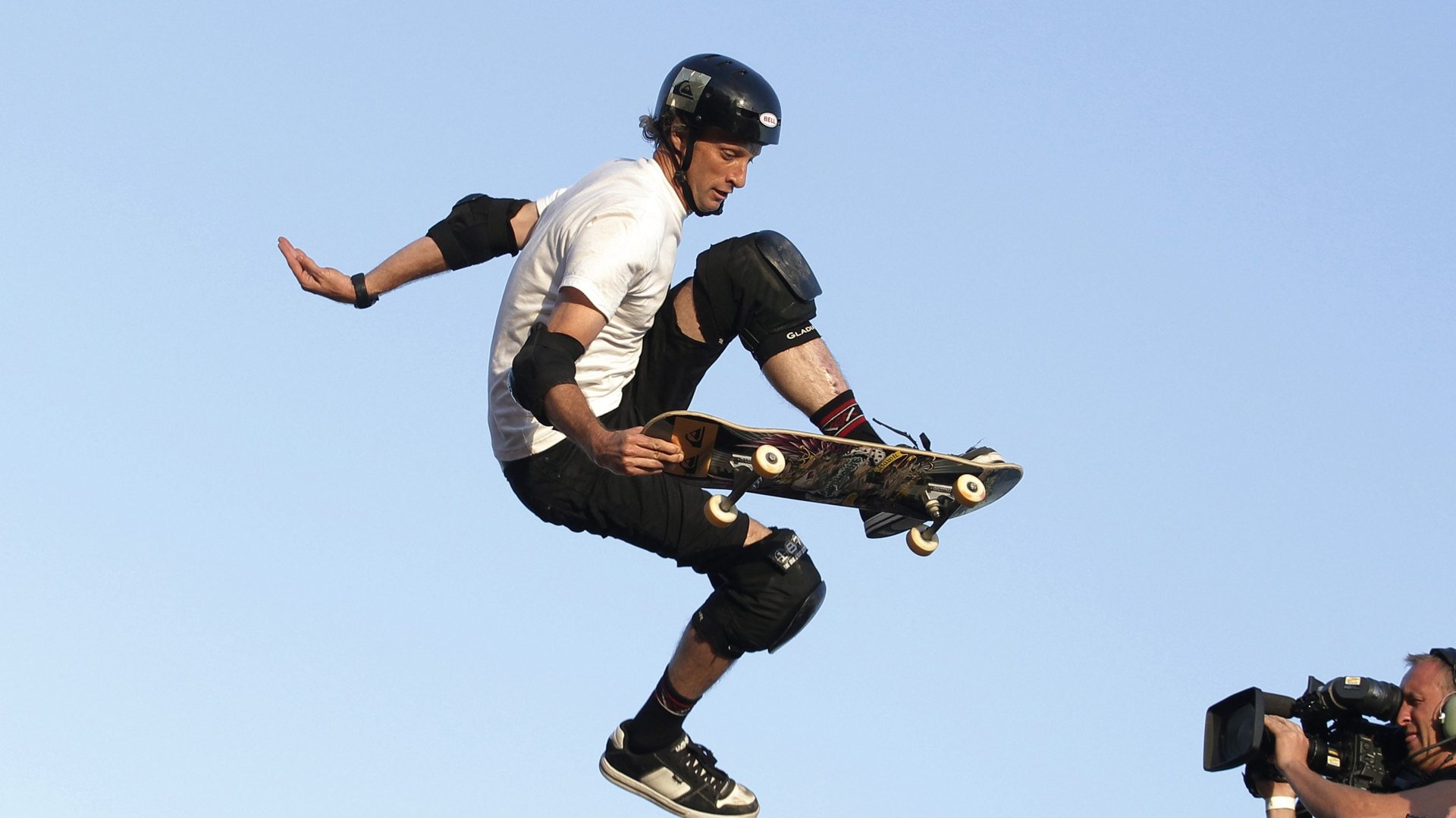Skateboarder Tony Hawk said he had to destroy his brand to learn its value
Today, Tony Hawk’s brand is fairly impeccable. The poster boy of action sports is “seen as athletically talented, with performances that provide thrills,” notes Leigh Steinberg, a sports agent who has represented more than 300 top athletes. On top of that, the pro skateboarder is “intelligent, handsome, with a pleasing personality,” Steinberg says.


Today, Tony Hawk’s brand is fairly impeccable. The poster boy of action sports is “seen as athletically talented, with performances that provide thrills,” notes Leigh Steinberg, a sports agent who has represented more than 300 top athletes. On top of that, the pro skateboarder is “intelligent, handsome, with a pleasing personality,” Steinberg says.
But Hawk says was only able to develop his powerful brand by first coming close to destroying it. When he first had the chance to do product endorsements in the 1980s, Hawk says, he signed his rights away to several companies, often in direct conflict with each other. “I didn’t understand about quality control or keeping control of the brand,” he told an audience at tech conference Summit at Sea.
As a result, he quickly saw his name attached to several incredibly poor products. “They were ripping off other existing skate companies’ logos, putting my name on it, and it was like ‘Tony Hawk gear’ with these terrible Velcro wallets and plastic skateboards,” he added.
Hawk soon discovered a key lesson in product endorsements: Athletes can help sell merchandise but, when done wrong, those same products can tarnish and their reputations.
“That advertising is powerful,” says Steinberg. “If it’s not done well, makes an athlete look silly or stupid, or the product itself doesn’t work or doesn’t provide the results advertised, it can create negativity.”
When Hawk went to confront those he had contracts with, he was effectively told he had sold his rights away. One manufacturer he met with had toilet paper in his office with ‘Tony Hawk gear’ written on it. The “product” was a joke after a retailer said that even toilet paper with Hawk’s name on it would sell.
“He thought that would be funny for me. I realized he had no respect for me as a person: I was an entity. I was a brand for him to exploit as much as possible,” said Hawk.
The skateboarder ultimately had to pay to escape those contracts. And so, a decade later, when he had the chance to make Tony Hawk pro skater video games, Hawk insisted on having final approval of the product.
“I’m thankful that I did,” said Hawk. “I feel like I was a big reason there was authenticity to the game.”